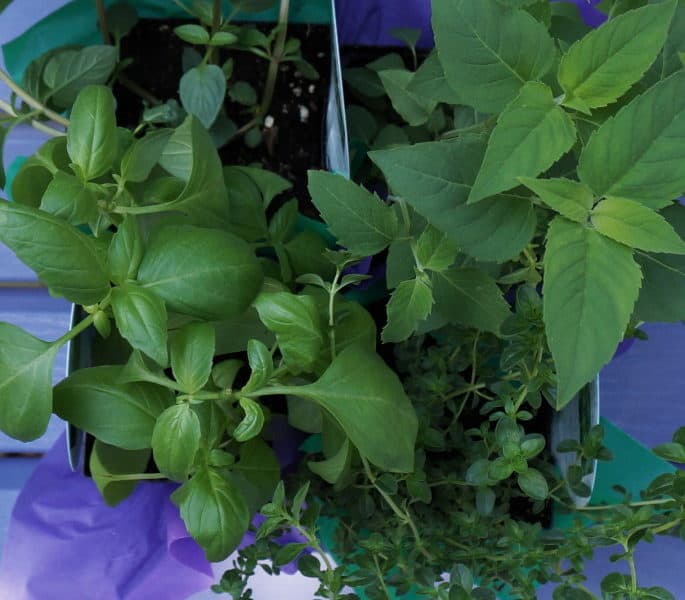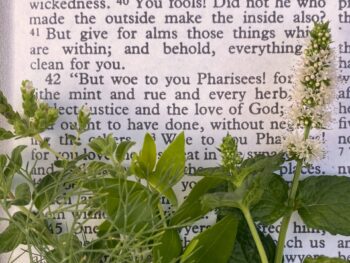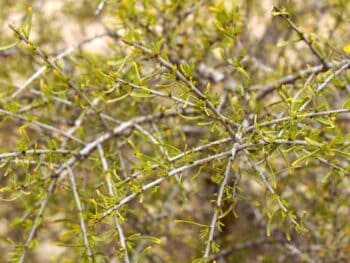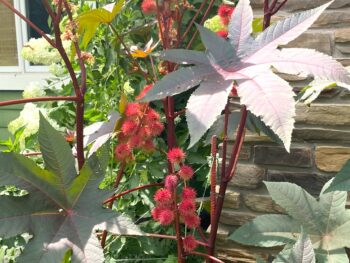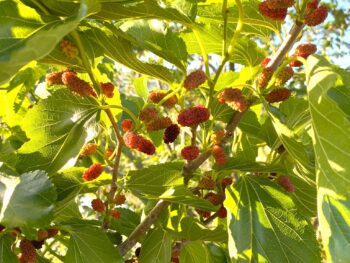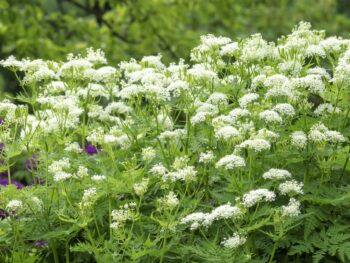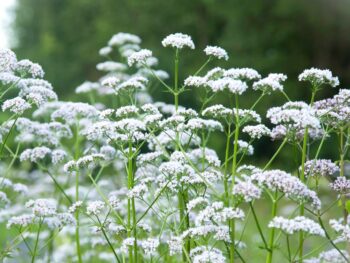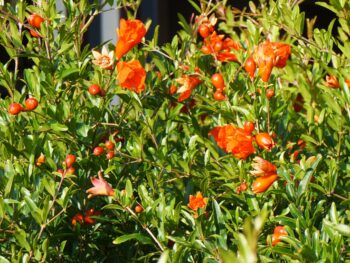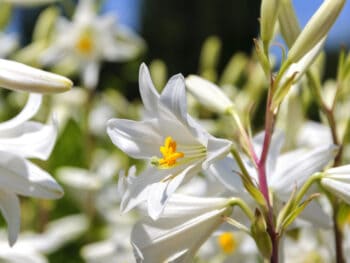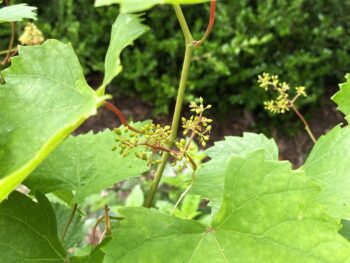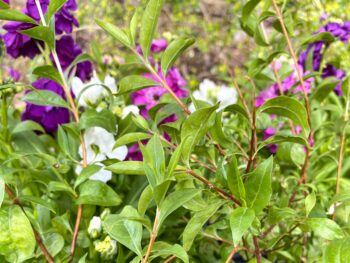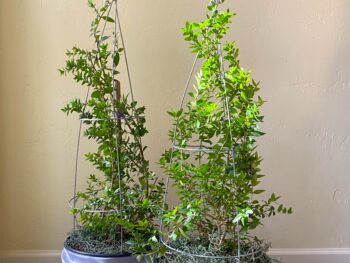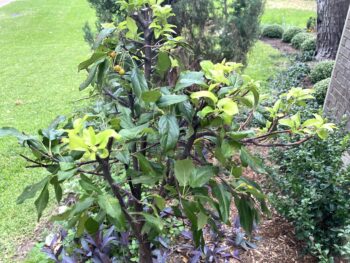Double duty herbs: A charge easy enough, as herbs are appealing, beautiful garden plants by their nature, all the while spicing up home life in everything from hand soap to pasta dishes.
However, let’s face it, we are a multi-tasking people; most activities with a slightly slow-pace have been adapted to include email-checking, photo-editing, or social media-commenting at the very least. Naturally, we have come to expect more from our gardening, notes Stephanie Rose, author of Garden Made: A Year of Seasonal Projects to Beautify Your Garden and Your Life:
With busy schedules and jam-packed gardens, plants have to do double duty if they’re going to fit into modern lives. We aren’t just growing a vegetable or flower garden anymore. Now gardens have multiple purposes like supporting pollinators, engaging children in the garden, providing the supplies to create your own beauty products, or decorating your plate with edible flowers and ornamental vegetables. So why not create a themed garden with plants that do serve that dual purpose?
—Stephanie Rose, quoted from “Try Something Different: Grow a Theme Garden!” for the National Garden Bureau, www.ngb.org
Agreed! Which is why at Garden in Delight, our gardening activity is faith-themed—a devotion to God and His Word, a double duty of garden goodness and spending time with our Savior. The following herbs take on two roles, yielding a special gift from garden or patio pot for the table, side by side with a treasured connection to Scripture. May we be the ones growing this summer, by putting His words into practice.
Mint
Mint is our only herb from today’s planting actually named in the Bible. Its mention contains a warning, much like the caution to plant mint in a restrained setting! Mint quickly increases by vigorous runners, which is good news if you have a plot to fill. Otherwise, reign in this fragrant plant in a pot or a bed surrounded by paved surface.
Hypocrites! You pay a tenth of mint, dill, and cumin, yet you have neglected the more important matters of the law—justice, mercy, and faith. These things should have been done without neglecting the others.
Matthew 23:23 HCSB

That is, as herbs are a seasoning flavor—an adornment, a flourish— and not a meal’s nourishing ingredients, so outward display of religious ritual is no substitute for the sustenance of God’s justice, mercy, and faith. These are His essential qualities to dig into, to establish earnestly in our hearts that they may display in our conduct.
Plant Herbs: Plant mint in the middle of a pot, placed in a sunny spot, and watch it quickly “fill*” with lush leaves and refreshing aroma. Find mint in our Plant Guide for more growing information.
Garden to Table: Stems of mint make excellent greenery for your table’s centerpiece, For tasty flavor, add leaves as revitalizing coolness to summer drinks, and a playful, lightened zest to salads, grilled meats, and vegetables.
See A Tasteful Place at the Dallas Arboretum’s Recipe for Orange Mint Pomegranate Salad
Basil
Basil is not a Bible plant—“NBP,” Not Bible Plant. However, this herb seems to be enduringly patient with summer’s heat; basil begins to flourish once the warmest days settle in.
This calls for patient endurance and faithfulness on the part of God’s people.
Revelation 13:10 NIV

Likewise, we are to endure our difficulties, knowing in gentle hope, they in turn grow endurance in us. It is a small but strengthening solace to know that with the Lord, such times are purposeful and He will call upon us with this deepened capacity.
Plant Herbs: Plant basil in full sun towards the back of a pot, for it will “thrill*” with 2 foot stalks and higher several weeks into summer. This herb also does well to fill in flower beds, standing tall alongside summer blooms from agastache to zinnias.
Garden to Table: Basil leaves are sensual in floral arrangements, sending out spicy aroma. Yet their great callings are to accompany tomatoes in Italian cuisine, and to create pesto sauce, crushed in olive oil with garlic and pine nuts, or pistachios.
See Herb ‘N Cowgirl’s Tips for a Bigger Basil Harvest
Bee Balm
Bee Balm is “NBP” as well, though a cheerful reminder to trust the promises of God. How? Its big, fluffy flowers, blooming by early summer, beckon the bees and other fluttering pollinators…bee-cause nothing gets the honey flowing like a healthy bee population!
We went into the land to which you sent us, and it does flow with milk and honey!
Numbers 13:27 NIV

Plant Herbs: Plant bee balm as a neighbor to any of your summer vegetables; its bright blooms grow taller to “thrill*” the back of a pot or raised bed (may need staking as flowers mature). Its witty name is matched by its whimsical draw for pollinators to come, helping to ensure a productive yield for the summer garden. Bee balm is perennial in most cold hardiness zones.
Garden to Table: Bee balm flowers are cheery, fanciful blessings to table in floral arrangements; I grow this herb for flower dazzle alone! although many have written on its medicinal and herbal uses.
See American Meadows tips on How to Grow Bee Balm
Thyme
Who doesn’t need more thyme?? This punny herb is also “NBP;” however, I can never contain my chuckle at the play on words, time and thyme again! As God’s Word is filled with word play in Hebrew, I don’t think any faith garden should be thyme-less.
There is a time for everything, and a season for every activity under the heavens…everything has been made beautiful in its time.
Ecclesiastes 3:1, 11 NIV

Plant Herbs: Plant thyme, a low growing herb, in the front of your pot or garden border. The small, spreading branches will “spill*” a bit over the edge or move out some to cover front ground. Delicate, pinpoint blossoms speckle the plant in early summer. Thyme is perennial to zone 5-ish.
Garden to Table: Don’t overlook the diminutive leaves! Thyme packs savory, pungent flavor which I sprinkle on everything. From eggs to sandwiches and breads to salads to grain side dishes, this tiny herb is a mighty resource in the kitchen. Use clumps of sprigs as adorable garnish, to make everything beautiful on the table.
See Martha Stewart’s many recipes with thyme
He makes grass grow for the cattle, and plants for people to cultivate—bringing forth food from the earth… May the glory of the Lord endure forever; may the Lord rejoice in his works— May my meditation be pleasing to him, as I rejoice in the Lord.
Psalm 104:14, 31, 34 NIV
Request your free bookmark to return to these devotions all summer by emailing me at shelleycramm@gardenindelight.com
Today’s herbs come from Blue Label Farms, a local, organic grower in North Texas. Stay tuned for more of their marvelous story. I am grateful for their support of GWA, The Association of Garden Communicators
*”Thrill, Fill, and Spill” is a hugely propagated design idea for container plantings, see one of the original design articles by Steve Silk in Fine Gardening

Mint – “A Gardener’s Clue,” Bearing Fruit, page 1112
Basil – “Summer,” Seasons, page 983
from Bee Balm – “Flowing with Milk and Honey: You Have a Future,” The Promised Land, page 180
Thyme – “Thyme Needs Space,” Thanksgiving, page 1427
“The Container Design Recipe: “Thillers, Fillers and Spillers,”” Planting Pots, page 1370
Photo Credits:
©2018 Shelley S. Cramm

